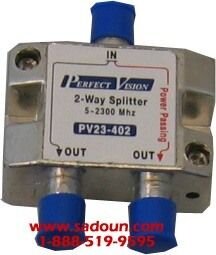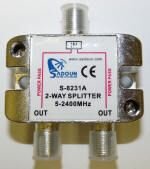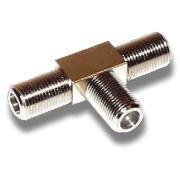OK guys,
I consider myself a newbie to this hobby. And I have the task at hand: splitting a signal coming from my STB's Pass Through port btw 2 lines: one going to an Add-on card mounted inside the STB, another to one of my Sat Card PC tuners mounted inside a PC. I looked around for a high frequency splitter, and found several types, including non-power passing, DC power passing on one OUT port, and DC power passing on both OUT ports. I assume, they are dual-directional (or not?), i.e. DC is passed from IN to OUT splitter port(s), and in opposite direction (not blocked from OUT to IN).
And I have the task at hand: splitting a signal coming from my STB's Pass Through port btw 2 lines: one going to an Add-on card mounted inside the STB, another to one of my Sat Card PC tuners mounted inside a PC. I looked around for a high frequency splitter, and found several types, including non-power passing, DC power passing on one OUT port, and DC power passing on both OUT ports. I assume, they are dual-directional (or not?), i.e. DC is passed from IN to OUT splitter port(s), and in opposite direction (not blocked from OUT to IN).
I want to control my motor and be able to select sats & channels independently from both the STB and PC Tuner. I will mostly use one receiver at a time or the other, but sometime both.
Which type of splitter do I need for my application and why? Should it allow DC power to pass in both directions: In and Out?
What splitter makes and models will do the best job - low noise and signal degradation?
Other suggestions (be gentle please, I'm "almost" new!).
I consider myself a newbie to this hobby.
I want to control my motor and be able to select sats & channels independently from both the STB and PC Tuner. I will mostly use one receiver at a time or the other, but sometime both.
Which type of splitter do I need for my application and why? Should it allow DC power to pass in both directions: In and Out?
What splitter makes and models will do the best job - low noise and signal degradation?
Other suggestions (be gentle please, I'm "almost" new!).
Attachments
Last edited:




